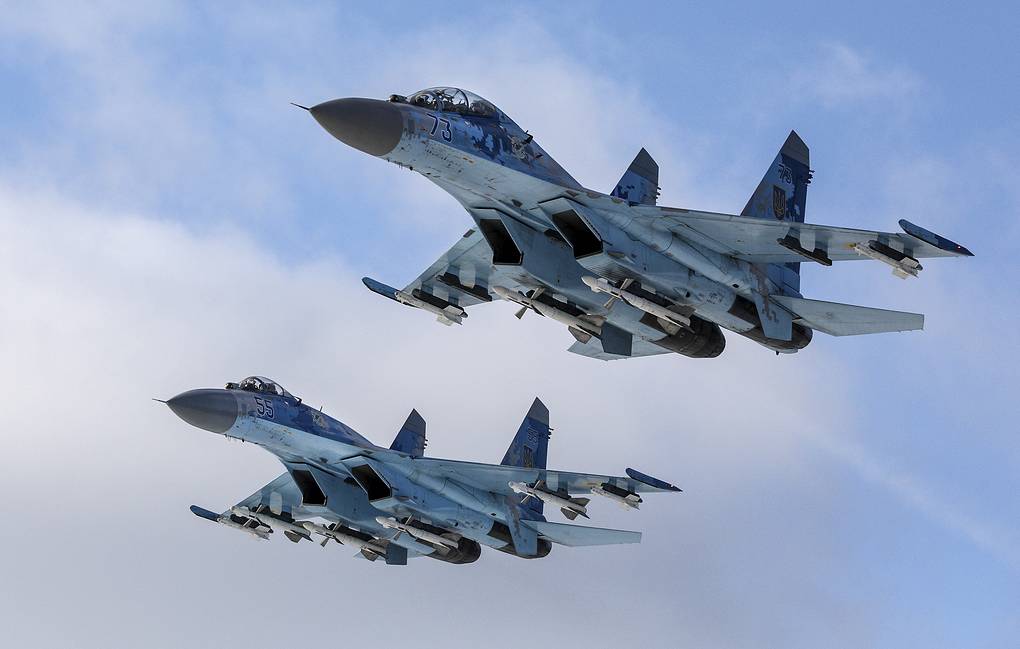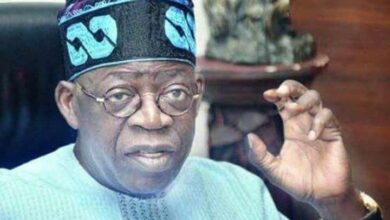
Top stories from the Russian press on Friday, February 10th
The EU leaves Ukraine’s Zelensky empty handed on fighter jet promises, North Korea staged a military parade to showcase its latest weapons, while Russia’s top diplomat wrapped up his African tour. These stories topped Friday’s newspaper headlines across Russia.
Izvestia: EU leaves Zelensky empty handed on warplane promises
On Thursday, EU leaders convened a summit in Brussels. For the first time, they were joined in person by Ukrainian President Vladimir Zelensky. Despite this, the EU did not promise to supply warplanes to Kiev in the end. Also, Brussels announced plans to slap additional sanctions on Moscow by the first anniversary of the special military operation. These will mostly mean expanded blacklists of individuals.

“I think several EU member countries may agree to send fighter jets individually, but I don’t expect any collective agreement, at least soon,” German MEP Gunnar Beck told Izvestia. He explained that there was no legal basis for that in EU treaties, while defense and external security issues remained the prerogative of member countries.
It’s hard to predict what the EU will decide in terms of supplies, as the bloc always makes decisions behind the scenes, and those who disagree are often pushed toward such decisions anyway, Sergey Shein of the Higher School of Economics maintains. However, the expert said, Ukraine was just one of the topics on the Council of Europe’s agenda, and inviting Zelensky was a symbolic move. “Though the Europeans support Ukraine’s ambitions to join the EU, they will have to discuss more pressing issues they are facing domestically, for example, the threat of another migration crisis,” he added.
Valdai Discussion Club Program Director Oleg Barabanov argues that the decision to deliver fighters will be made anyway, even if it’s not at the current summit. The discussions are likely to continue at a NATO Defense Ministers meeting in Brussels on February 14-15. Besides, Kiev plans to raise the issue at the 59th Munich Security Conference to open next Friday.
Vedomosti: North Korea trots out newest ICBM at parade marking army’s founding
On Wednesday, a military parade was held in Pyongyang to mark the 75th anniversary of the Korean People’s Army. North Korean leader Kim Jong Un attended the parade with his wife and daughter. Judging from the KCNA state-run news agency’s footage, the parade showed tactical missiles and long-range cruise missiles capable of carrying nuclear warheads, a record number of intercontinental ballistic missiles (ICBMs) and, presumably, a prototype of a new solid-fuel ICBM that was larger than all other missiles.
It is this ICBM design that Pyongyang views as one of its key goals, since it would complicate the enemy’s task of detecting and destroying the North’s arsenal in the event of a conflict.
According to Alexander Yermakov, a military expert with the Russian International Affairs Council, North Korea is continuing last year’s policy of keeping the world community interested in its nuke and missile program. Against the backdrop of the hostilities in Ukraine, the DPRK has to spend more efforts on this, because by maintaining interest the DPRK is trying to ensure its national security and at the same time attract the West to negotiations on reducing sanctions pressure in exchange for limiting its program. The greatest interest from what was shown at the parade, Yermakov agrees, is the announcement of a solid-propellant ICBM and a greater number of mobile ground-based missile systems than in previous years. However, any loud reaction from Washington should not be expected, since it is focused on China and – to a certain extent – Russia, he added.
The ICBMs North Korea trotted out at the parade are a serious wake-up call that will have an impact on the mass perception of the country, Leading Research Fellow at the Korean Studies Center, the Russian Academy of Sciences’ Institute for Far Eastern Studies Konstantin Asmolov pointed out. The DPRK was previously perceived as a regime obsessed with nukes that has quite a modest arsenal of weapons and a deficit in resources, and now it is obvious that Pyongyang has several ICBMs, and that those will be in service with its troops. To Asmolov, this complicates things, as South Korea has been actively arming itself in response and is even mulling deploying US nuclear weapons on its soil to counteract Pyongyang. If Seoul takes such a step, tensions will skyrocket on the peninsula, as Russia and China will perceive the deployment of US missiles in South Korea as a threat to their own security, the expert warns.
Vedomosti: Lavrov wraps up his African tour in Sudan
On February 9, Russian Foreign Minister Sergey Lavrov visited Sudan. The Sudanese capital of Khartoum was the final stop on Lavrov’s second African tour this year. Russia’s top diplomat met Abdel Fattah al-Burhan, the de facto head of state of Sudan, his deputy Mohamed Hamdan Dagalo and Sudanese Foreign Minister Ali al-Sadiq. Lavrov last visited the African country in 2014.
In December 2020, Russia and Sudan’s current authorities agreed to station a Russian Navy sustainment center on country’s Red Sea coast, but the Sudanese government said in 2021 it was not ready to ratify the relevant agreement with Russia. Following talks with his Sudanese counterpart, Lavrov said Khartoum would ratify the document now.
The transition period has been delayed in Sudan, and the country needs financial assistance as well as development strategies and technologies, Research Fellow at the Russian Academy of Sciences’ Institute of Oriental Studies Grigory Lukyanov told Vedomosti. This is why the country’s leadership has been building relations with the United States, while striving to have the sanctions lifted and get access to Israel’s technologies upon Israeli recognition and get US investments. Sudan’s incumbent leaders view Russia and China as an alternative, should economic cooperation with the West mean that the military will have to leave power without any security guarantees, Lukyanov said. It would be more beneficial for al-Burhan not to get irreversibly close to the West, China or Russia, but rather to keep balancing between them. Though this does not give the country any hope of overcoming the crisis, it allows Sudan to buy time to strengthen its positions. Both Russia and the West understand that only too well, so neither is going all-in on this country for a better economic presence on the continent.
Sudan, just like Eritrea, where Lavrov visited in January, is one of potential `entry points’ for Russian businesses on the African continent, Associate Professor at Moscow State University’s Faculty of World Politics Natalia Piskunova, told Vedomosti. However, Sudan’s close ties with the Middle East and the political problems faced by the region do not speak in Sudan’s favor, she added.
Rossiyskaya Gazeta: Russian ambassador to Poland comments on bilateral relations
Asked when Poland could call on the EU for providing nukes to Ukraine, Russia’s Ambassador to Warsaw, Sergey Andreyev, said he would not jump to conclusions here, even though he admitted that the Poles have always been at the forefront of lobbying for more weapons to be delivered to Kiev. “They are not deprived of the instinct of self-preservation. Loud statements are one thing, and real actions are a different matter,” the diplomat said in an interview with Rossiyskaya Gazeta.
As for any severance or downgrading of diplomatic ties, that could only happen at Warsaw’s initiative, he said. The Russian Foreign Ministry insists that communication channels should remain available even in times of crisis, Andreyev said.
According to the Russian envoy, there are tens of thousands of Russians who need consular services in Poland, despite the political tensions. “[Channels for dialogue with the Polish authorities] remain, though the frequency of meetings has been minimized,” he said.
Media: Lower export revenues putting pressure on ruble
According to an estimate from the Bank of Russia, in January, the country’s current account surplus shrank to $8 billion, which is more than half that of January 2022, a low not seen since mid-2021, excluding December 2022.
The drop in foreign exchange revenues amid the sanctions and the geopolitical discount in prices for Russian commodity exports continue to weigh on the ruble, Vladislav Danilov at the Pervaya asset management told Kommersant. Dmitry Babin at BCS World of Investments agrees, adding that growing budget expenditures must have been aggravating things.
Finam analyst Alexander Potavin told Izvestia that the ruble might be falling ahead of the president’s address to the Federal Assembly, slated to take place after February 20, when Vladimir Putin could discuss the need for a war-time mobilization of the economy.
In the near term, the ruble exchange rate will depend on oil prices and crude exports, experts interviewed by Izvestia warn, Vladimir Yevstifeyev at Zenit told Izvestia that the Russian currency could weaken to 75 per $1 and 80 per €1 in the near term. The country is currently adjusting to the EU’s latest price ceilings on crude and petroleum products, and the process could last a few months, even if Russia manages to redirect the bulk of its exports to the East, he explained.
TASS declares is not responsible for the material quoted in these press reviews









